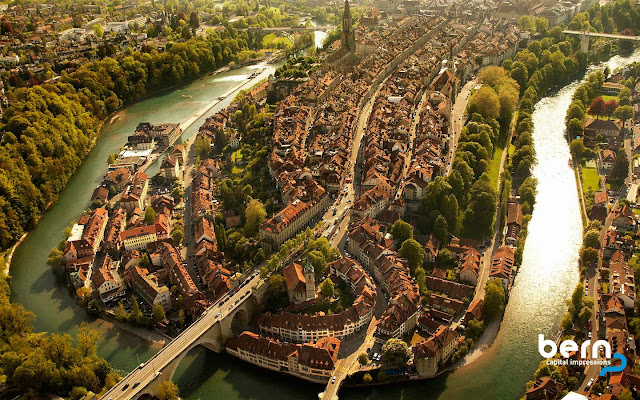 |
| Where has the heart of the community gone to? |
Who among you wants to hear some good news? Who yearns for a bit of gospel? Whose bones, beside mine, are hungry for that sustenance so vital for holistic growth? If you or a friend/family member of yours have tuned in to these questions with eager anticipation, then I have encouraging answers for the lot of you all. To hear them will only require a moment of your time.
Building off of the attention paid to and theme of my latest post, "Social Capital as a Remedy for Our Modern 'State of Nature,'" I can thankfully report that my effort to build Social Capital -- by baking a 4th of July dish for my neighbor -- succeeded by every measure imaginable. Not only did my neighbor, Dennis, accept my green bean casserole with open and affectionate arms, but he also repaid my act with more consideration than I expected would be forthcoming.
He genuinely appreciated my gift. However tasty or filling my dish may have been, his reaction -- after the initial surprise -- was a wave of elation that shown through his emotions. He actually invited me into his home for a beer after I gave him the dish. I'm not sure if he responded thusly as a matter of form or genuine appreciation, but I was flattered nonetheless. I politely declined because I planned to meet with a friend soon thereafter, but our exchange was refreshing. We parted with kind words and giddy enthusiasm. Honestly, giving Dennis that gift was an electric feeling because it felt so free of social constraints or obligations.
The following day -- the 5th of July -- I was busy hacking away at my pile of golf balls in my backyard with a handful of old, rusty clubs that I had collected over the years. Dennis had watched me from time-to-time with aloof interest as someone watches a deer cross the open road; better if one watches while not disturbing. He was keen to observe but not interact. On only a handful of instances can I remember him offering a friendly tip or word of flattering encouragement. But the day following our 4th of July exchange, out walked Dennis from the side of his house with a shiny golf club in-hand. Strolling up to me with a slick grin across his face, he came close and this is what he said,
"Cory, we don't talk a lot, but I was really happy the other day when you took the time to give me that dish; that was really nice of you and I appreciated that..."
He paused for a moment to jack the club up into both of his hands and looked down at it like he was weighing the value of it. He lifted his arms from his waist, hands open but cupping the club gently and with such severity as if it were a sword re-forged from the crafty hands of the elvish-kind from Rivendell in the Lord of the Rings. He spoke up and said,
"I've had this club sitting in my basement for awhile, now, and I haven't used it for years because I don't play anymore. I see you practicing all the time and thought you could use another wedge."
I remember the way he lifted the club and offered it to me; his seriousness surprised me. I noticed how polite he was to not mention how shitty my rusted clubs were when he said,
"... and thought you could use another wedge."
Not a good wedge or better wedge, only another wedge. I was struck by his posture, his demeanor, his approach, all of which showed either deference or a sense of formality that -- at the time -- seemed out-of-place but upon reflection were the very types of tailored reactions I had hoped for. Only later that day did I appreciate the degree to which our relationship had evolved from one of a casual nature to one of an interwoven, more complex, and valuable variety. Unwittingly or not, we had crossed a threshold: behind lay the passive, at-arms-length treatment of our interactions which were punctuated by the passing nod, wave, or meaningless greeting that is more often dis-engaging than it is engaging. Beyond lay the full-range of active, contributive relations made possible by a simple exchange of gifts. We had shared an antiquated swap of material things the act of which was notable more for the emotional effect it had upon us than any physical benefit we may have enjoyed.
I told Dennis, of course, that I couldn't accept his gift because it's value was worth far more than my simple casserole. How did he respond?
"Are you kidding?!?! You baked a casserole for me. That took time and effort. God knows I can't cook. That was a nice gesture and is worth more than any golf club,"
he said before shaking my hand in confirmation of the deal and his firm insistence that I accept the club. He then told me to have fun before he turned to walk back to his household, Friday chores.
I stood there for a moment trying hard to grasp the weight of what had occurred given the theme which my last blog post had specifically dealt with. In that treatment of Social Capital, I had hypothesized that he would respond to my spontaneous -- but no less genuine -- gesture with a similarly kind act of selfless consideration. Only, I had hoped he would respond in kind by helping me work out the construction of a crude back-yard garden. But beggars aren't choosers and my hypothesis was confirmed by experimentation in a technical sense if only lacking in quality. Sure, Dennis did not assist my gardening efforts, but I also hadn't started that project in the first place. His reciprocation, however, was immediate, genuine, and valuable.
--------------------------------------------------------------------------------------------
.
Perhaps I should leverage the nascent upsurge of goodwill felt between myself and Dennis by replicating an act of similar or of a more ambitious character. Maybe I should try to affect a similarly positive reaction from a different neighbor of mine. Or, if time and effort should allow, I could do both at the same time. If momentum builds, my focus upon door-to-door relationships could gravitate towards the realm of a goal with more mass and ambition: a neighborhood-wide exchange of old belongings or the organization of a monthly cook-out. This brainstorming taps into the bottomless well of activities that are both capable and efficient means of generating Social Capital.
Again, I must reiterate a point made from my last post: generating Social Capital requires efforts that might seem counterintuitive because they are done for free and offer no immediate value to those performing the actions which generate that capital. After all, why should I take the time to bake a casserole for my neighbor? There's no guarantee that he will reciprocate, or even return my dish for that matter. That chance of a null effect is eminently plausible. And yet, the opposite effect is eminently plausible, too. And along with reciprocation comes the added benefit of an upgraded, more integrated relationship between individual members of the community.
The eventual goal of these efforts to build Social Capital within a community is to achieve a level of involvement and active, contributive participation by individual members of the community which is self-sustaining. Any community that achieves this status will look inwards to solve problems as they arise by employing resources internal to the group instead of relying on assistance from a third party. This community will have low crime because its ethical standards will be locally appropriate, explicit, and accessible to all. Community-wide activities should occur both spontaneously and according to static schedules which are widely communicated. Individual members of the community should find assistance forthcoming from their neighbors should they need it, and such assistance should be offered as an end in-and-of-itself, with no strings attached. Crucially, each member of the model community of which I speak should acknowledge their responsibilities within the community as a list of explicit, productive duties to be performed, not for the sake of the individual's well-being, but for the sake of the health of the community.
Keep in mind, duties performed for the community's sake will ultimately benefit the individual, but that effect could be neither immediate nor direct. To neglect one's duties within the community, however, is to trigger the first domino that initiates the "Free-Rider" wave. As this process progresses, individual members violate their social contract with the community with increasing frequency, and as the number of violations mounts the cooperative pressure that pumps the group's life-blood eases until no connections -- or a negligible amount -- exist to sustain the community. It is nearly impossible to arrest this process within a community because irrationality weighs heavy upon the longer, more pragmatic view which most community members are accustomed to seeing.
Better to not let this Free-Rider dilemma -- this sharp apathy -- take hold within one's community. To do so, communities need two essential types of members:
- (1) leaders to exercise a strategic vision of their community's future which is defined by:
- (a) current trends of finance, demographics, locations, economy, etc., and
- (b) the ability to manufacture a community-wide adaptability to the full range of unforeseen opportunities and threats that are bound to foist themselves upon the most meticulously-laid plans; and
- (2) tireless, everyday enthusiasts whose active lifestyles maintain a reliable and visible daily reminder of the community's physical existence (through walking clubs, crossing-guard stations for elementary school bus-stops, maintaining cork post-boards, street trash clean-up, etc.)





